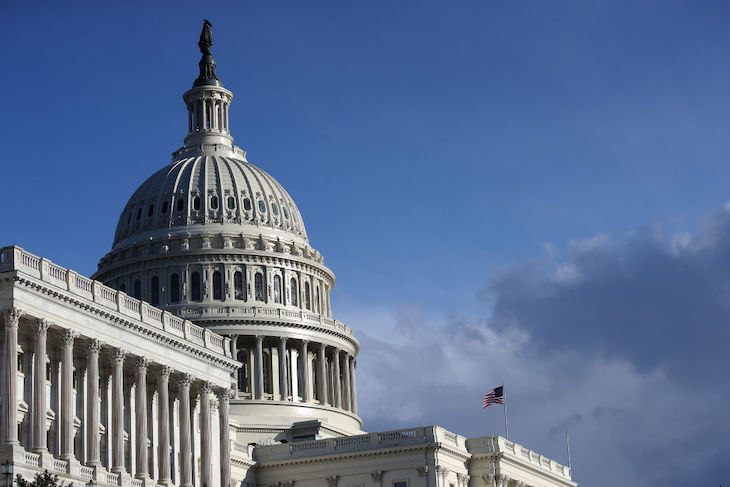Picture a forum where some of America’s most prominent men and women assemble in a healthy, civilised way to discuss and hash out the country’s major issues for the good of the people. This forum, theoretically, was supposed to be the United States Senate, a group of distinguished legislators who would introduce reason into the national debate. George Washington himself called the Senate a ‘saucer,’ a cooling agent to the scalding legislation that came out of the House of Representatives.
My how far the Senate has fallen.
In the past, being a US senator was a point of pride. You were an elite member of an elite club working in an elite institution. Some of America’s greatest politicians made their living as senators – think Ted Kennedy, Sam Nunn, Richard Lugar, and John McCain. Many US presidents: John Quincy Adams, Andrew Jackson, Harry Truman, John F. Kennedy, Lyndon Johnson, Barack Obama were former US senators. It was called the ‘world’s greatest deliberative body’ for a reason.
Today, one can substitute the word ‘greatest’ for ‘childish’. The Senate is increasingly a place where legislation goes to die. Ideas may percolate there, but they don’t go anywhere. Politics and partisanship kills even the most common-sense proposal, like a middle-of-the-road comprehensive immigration reform package, economic relief after a natural disaster, or infrastructure funding. Turn on C-SPAN, the US network that broadcasts Senate proceedings, and you will be treated to 40-minute stemwinders about nothing in particular. Democrats will point the finger at Republicans for being too beholden to Donald Trump. Republicans will point to Democrats as obstructionists. And ordinary Americans will wonder yet again why these people are getting six-figure taxpayer-funded salaries.
Some of the people who came into the Senate looking to make a difference for their constituents are either thinking about retiring or moving to another job. Asked by a reporter earlier this year whether the Senate has hit rock-bottom, Montana Sen. Jon Tester gave a senatorial-like response: ‘The fact that we’ve had political vote after political vote after political vote while there’s issues like climate change and comprehensive immigration [reform] that we don’t take up –yeah.’
The gridlock has gotten so bad that some top senatorial prospects would rather skip the show altogether. Montana Gov. Steve Bullock, a Democrat who has won three state-wide elections in a heavy Republican state, was one of those prospects. But he had no interest in being recruited. ‘I think that my skill set and what I’ve done, I just wouldn’t enjoy it, so I’d ruled it out.’ Bullock decided to launch an improbable presidential campaign instead.
Former Colorado Gov. John Hickenlooper, another appealing Senate candidate for the Democrats, was another. ‘Senators don’t build teams. Senators sit and debate in small groups, which is important, right? But I’m not sure that’s my—I’m a doer,’ Hickenlooper told reporters. The not-so subtle message: senators don’t do anything anyway.
When I went up to Capitol Hill several weeks during a brief trip to Washington, you could almost see the disappointment in the eyes of Senate staffers. Everything up here, they confessed, is jammed. Nothing gets done except judgeship confirmations. Lawmakers find it easier to introduce messaging bills for political purposes rather than compromise legislation that has a possibility of passing. The ever-crushed middle of the political spectrum is being compressed between two opposing extremes. Bipartisanship is in short supply.
Is there any wonder, then, why ambitious politicians would prefer to stay away from the Senate entirely?
This situation is more than unfortunate. It’s like a deadly plague sweeping across America’s constitutional republic. The more deadlocked the Senate becomes, the more likely presidents will ignore Congress and do things on their own by executive order.
If the Senate wants to attract promising talent, it can’t continue operating in a purgatory. If it doesn’t change, the body will have nobody to blame but itself for America’s drift into a quasi-monarchy with a boisterous, obnoxious, and utterly feckless legislative branch.






Comments